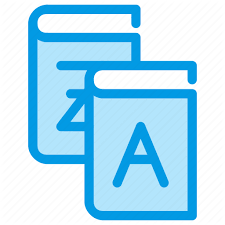Using technology to assist in vocabulary acquisition and reading comprehension
Abstract
The article deals the different type of project-based learning and its pedagogical principles. The importance of project-based learning method and its effectiveness was written here.
References
AlKahtani, S. (1999). Teaching ESL Reading Using Computers. The Internet TESL Journal, V (11). http://iteslj.org/Techniques/AlKahtani-ComputerReading/
Anderson, N. (1999) Exploring Second Language Reading. Issues and Strategies. Boston: Heinle &Heinle Publishers.
Busch, H.-J. (2003) Computer Based Readers for Intermediate Foreign-Language Students. Educational Media International, 40 (3-4), pp. 277-185.
Butler-Pascoe, M. E. and K. M. Wiburg. (2003) Technology and Teaching English Language Learners. Pearson Education, Inc. pp. 114-137.
Brett, A & Rothlein, L. (1996). Vocabulary acquisition from listening to stories and explanations of target Words. The Elementary School Journal, (96) 4,67-85.
Balochowicz, C. & Fisher, P. (2000). Teaching Vocabulary. Manhwah, NJ: Erlbaum Brown, T. S. & Perry, F. L. (1991). A comparison for three languagestrategies for ESL vocabulary acquisition. TESOL Quarterly, (25).4, 655-670
Chun, D.M. (1996). Effects of multimedia annotations on vocabulary acquisition. The Modern Language Journal, (80)2, 65-80.

In submitting the manuscript to the International Journal on Integrated Education (IJIE), the authors certify that:
- They are authorized by their co-authors to enter into these arrangements.
- The work described has not been formally published before, except in the form of an abstract or as part of a published lecture, review, thesis, or overlay journal.
- That it is not under consideration for publication elsewhere,
- The publication has been approved by the author(s) and by responsible authorities – tacitly or explicitly – of the institutes where the work has been carried out.
- They secure the right to reproduce any material that has already been published or copyrighted elsewhere.
- They agree to the following license and copyright agreement.
License and Copyright Agreement
Authors who publish with International Journal on Integrated Education (IJIE) agree to the following terms:
Authors retain copyright and grant the International Journal on Integrated Education (IJIE) right of first publication with the work simultaneously licensed under Creative Commons Attribution License (CC BY 4.0) that allows others to share the work with an acknowledgment of the work's authorship and initial publication in this journal.





1.png)
